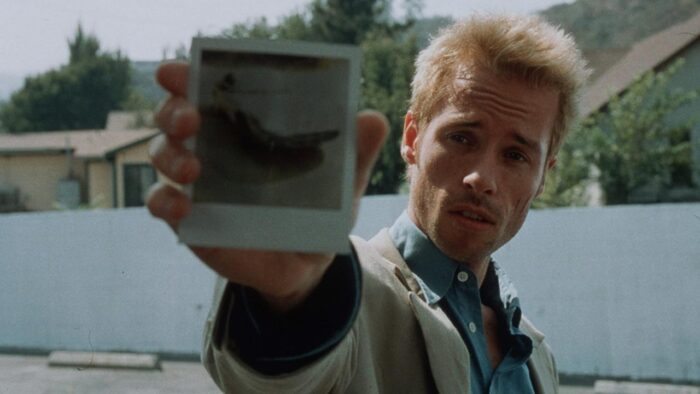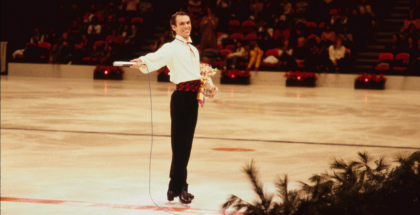Memento: Looking back at Christopher Nolan’s best film
Review Overview
Cast
10Script
10Direction
10David Farnor | On 03, Sep 2020
Director: Christopher Nolan
Cast: Guy Pearce, Carrie-Anne Moss, John Leguizmo
Certificate: 15
“Now, where was I?” That’s the question asked by Leonard Shelby every 10 minutes in Memento, as he tries to find his way through a world in which he can’t remember anything. Suffering from anteretrograde amnesia, he’s a former insurance salesman who can’t make new memories – a condition triggered by a traumatic, tragic event. “What’s the last thing that you do remember?” one person asks halfway through. “My wife,” he begins. “That’s sweet,” comes the reply. Then he adds the final word: “Dying.”
Revenge for her murder is what fuels his existence and we’re introduced to him in the middle of his hunt for the “John G” who was responsible. How does he know the name of the killer? He’s tattooed it to his body – along with dozens of other reminders and triggers, each one designed to help him remember something. All of this is the strong basis for a neo-noir, but this is a Christopher Nolan neo-noir and, even on his sophomore feature, the director is already experimenting with structure, time and perception. And so we watch Leonard’s piece-by-piece journey through a suitably fragmented lens: the whole film plays out backwards, with each subsequent scene taking us to the moment before the last. At the same time, these vignettes are intercut with black-and-white flashbacks that move forwards through Leonard’s story.
The result is a wonderful puzzle box of a film that smacks of ambition. Without the bombastic budget of later films such as Interstellar, Tenet or Inception, Nolan digs deeper into character to flesh out the possibilities of this twisting mystery. Guy Pearce is superb as Lenny, an intense, at times unreadable, yet always vulnerable presence whose square-jawed determination to force the jigsaw of his life into a picture that makes sense is utterly engaging.
Pearce gets stellar support from John Leguizamo as his untrustworthy friend, Teddy, who tries to stop him doing anything foolish, and a welcome complex role for the hugely underrated Carrie-Anne Moss as Natalie, a woman who has also lost someone and has her own vendetta to play out.
The result is a hard-boiled but open-hearted thriller, one that fuses form and content with the kind of inventive, intimate imagination that made Martha, Marcy, May Marlene such a knockout. By immersing us in the experience of Lenny’s disjointed view of the world, Nolan creates a moving story with the kind of emotional gut-punch many don’t associate with his clinical precision. “If we can’t make memories, we can’t heal,” observes Lenny, in one of his many voiceovers that bring a heart-wrenching grittiness to genre conventions.
Based on Jonathan Nolan’s short story Memento Mori, Christopher’s screenplay is a distilled shot of the filmmaker’s signature head-scratching style – edited together seamlessly by Dody Dorn (who also worked with Nolan on Insomnia). There’s a clarity to this low-key directorial effort, one that doesn’t leave any loose ends untied, even as it invites us to pull at the strands of Lenny’s unreliable narration. We all lie to ourselves to be happy, the film reminds us, even as we need mirrors to look in to remind us who we are. Memento puts us in the middle of that cycle of reflection and reality – the result is the most personal and disciplined movie of Nolan’s career. For that reason alone, it just might be his best.



















